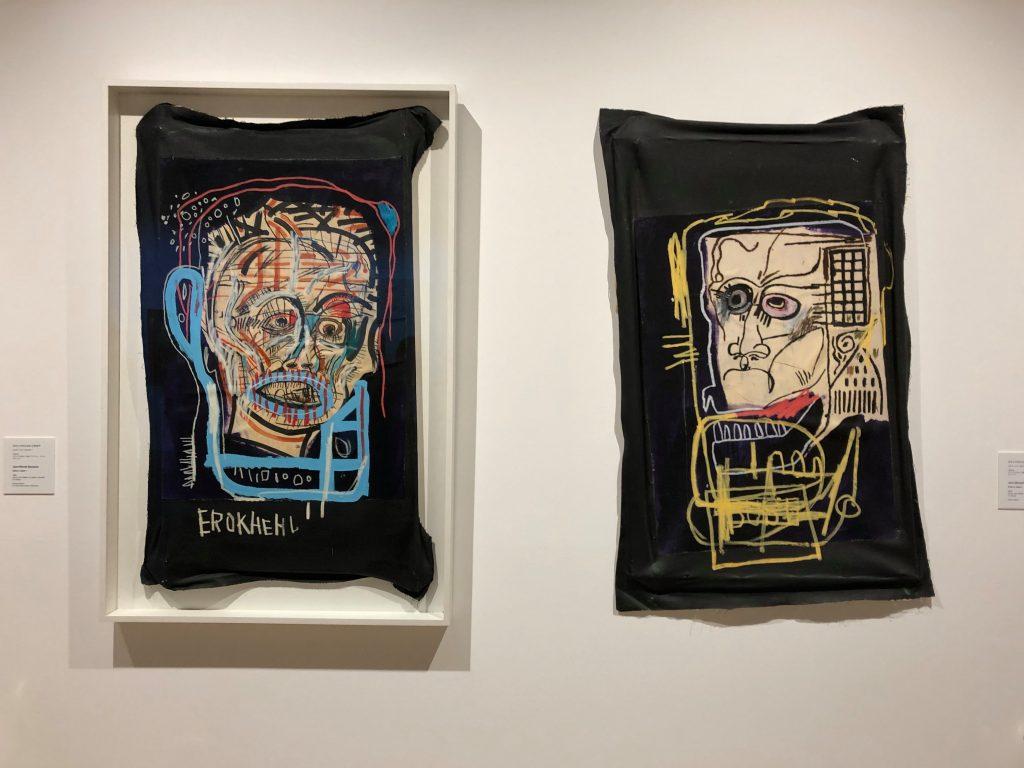Jean-Michel Basquiat's "Made in Japan" paintings are a fascinating exploration of his artistic engagement with Japanese culture and consumerism. Created in 1982, these works are part of a period when Basquiat was solidifying his reputation as a major figure in the art world. "Made in Japan I," one of the most iconic pieces from this series, is a striking example of his distinctive style. The painting features bold, painterly gestures and a graphic virtuosity that merges influences from street art, cartoons, and commercial advertising. The black background accentuates the vibrant colors and dynamic lines, showcasing Basquiat's ability to blend high and low cultural references seamlessly (Basquiat Archive) (Sothebys.com).
The title "Made in Japan" reflects Basquiat's commentary on the global nature of consumer culture and the commodification of art. This theme is evident in the way he incorporates elements reminiscent of commercial packaging and advertising slogans into his work. The painting's composition includes Basquiat's characteristic skeletal heads and fragmented text, which invite viewers to ponder the connections between cultural identity and mass production (Basquiat Archive).
Basquiat's connection to Japan was further deepened by his frequent visits and exhibitions in the country during the 1980s. These trips allowed him to experience firsthand the vibrant cultural and economic landscape of Japan during its boom years. This influence is apparent in the incorporation of Japanese characters and phrases in some of his works, reflecting a dialogue between his experiences in New York and Tokyo. This cross-cultural exchange enriched his visual vocabulary and added layers of meaning to his paintings (Sothebys.com).
The "Made in Japan" series is also significant for its reflection of Basquiat's broader artistic concerns, such as the interplay of identity, language, and power. The paintings from this period demonstrate his ability to synthesize diverse influences into a cohesive artistic vision that challenges viewers to reconsider the boundaries between different cultural and artistic traditions. Through these works, Basquiat not only critiques the pervasive reach of consumer culture but also celebrates the dynamic fusion of global artistic practices
(Basquiat Archive) (Sothebys.com).
Jean-Michel Basquiat's "Made in Japan" paintings are a testament to his innovative approach to art, his engagement with global cultural themes, and his ability to create compelling visual narratives that resonate across different contexts. These works continue to captivate audiences with their vibrant energy and thought-provoking content.

